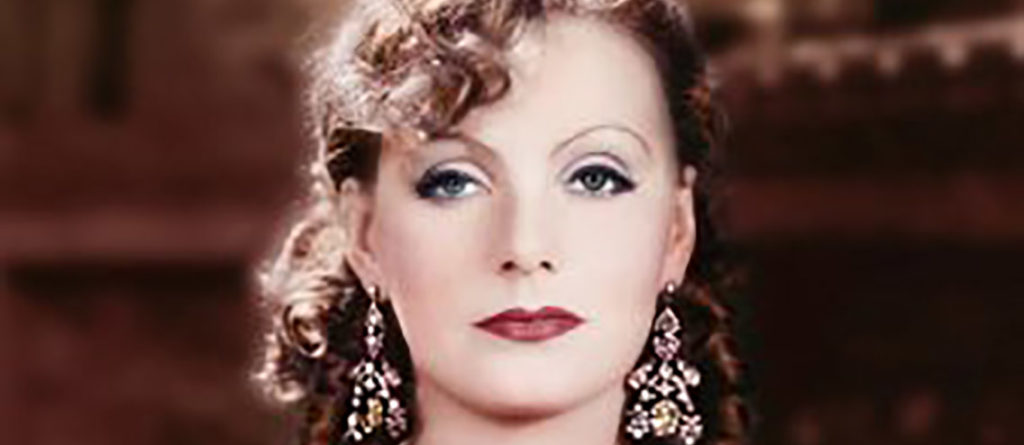Classic Hollywood: Revisiting Garbo

Winston Churchill called Russia “a riddle wrapped in a mystery inside an enigma.”
Same goes for Greta Garbo: an introvert who sought stardom. A recluse who claimed, “I want to be alone,” but walked daily around Manhattan. A notorious penny-pincher who left a $32 million estate. Garbo personified romance on screen, yet never married and confessed she lived “like a nun.” She crafted cinematic art and watched The Flintstones; owned three Renoirs and collected plastic trolls with fluorescent shocks of Don King hair.
Gone for 30 years, why does she still fascinate us?
In prepping for November’s Film Club feature, Ninotchka, I was struck by how Garbo’s melancholia—which permeated her work—also illuminates her craving for financial security and solitude.
Here, Garbo paints a vivid scene of her family’s meager life in Stockholm: “It was eternally gray, those long winter’s nights. My father would be sitting in a corner, scribbling figures on a newspaper. On the other side of the room, my mother is repairing ragged clothes, sighing. We children would be talking in low voices, or just sitting silently. We were filled with anxiety, as if there were danger in the air. Such evenings are unforgettable for a sensitive girl.”
Garbo left school at 13 to care for her beloved father, who died a year later: “From that time, there was only sobbing and moaning to be heard in our home. My siblings would not even try to control their grief and I often had to ask them to be quiet. To my mind, a great tragedy should be borne silently. It seemed disgraceful to show it in front of others, and for more than a year I cried myself to sleep every night.”
No wonder they called her “The Gloomiest Scandinavian Since Hamlet” – that was some bleak childhood!
At 19, Garbo left Sweden for Hollywood, where she became an overnight sensation playing tragic women like Camille and Anna Karenina. “No one could suffer like Garbo,” declared The New York Times.
Then, in 1939, she revealed a surprising flair for comedy as a dour Russian envoy who falls for Paris (and playboy Melvyn Douglas) in Ninotchka, directed by Rom-Com king Ernst Lubitsch, with an Oscar-nominated screenplay by Billy Wilder (Some Like It Hot).
Two years later, we were the ones left alone when Garbo abruptly retired at the age of 36. She vanished from the screen, yet continues to haunt our dreams.
Discover Garbo’s magic – and mystique in Ninotchka on November 19 at The Loft as part of the Film Club series 1939: Hollywood’s Greatest Year.
About Jeannie MacDonald
 Jeannie MacDonald is a freelance writer with a lifelong passion for classic movies. She’s written TV, radio, print and digital copy for Paramount Pictures and Warner Bros., as well as humor essays for the Los Angeles Times, Washington Post and Chicago Tribune.
Jeannie MacDonald is a freelance writer with a lifelong passion for classic movies. She’s written TV, radio, print and digital copy for Paramount Pictures and Warner Bros., as well as humor essays for the Los Angeles Times, Washington Post and Chicago Tribune.
